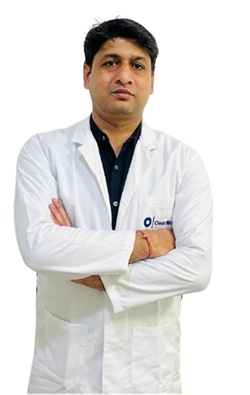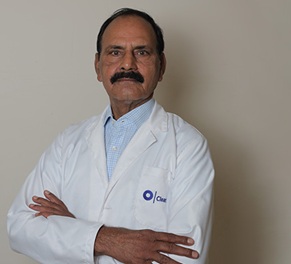How to Live with Pilonidal Sinus Dos and Donts

Quick Summary
Here are some tips for living with a pilonidal cyst:
- Keep the area clean and dry.
- Don't pick or squeeze the cyst.
- Wear loose-fitting clothing.
- See a doctor if the cyst doesn't go away or if it becomes infected.
A pilonidal sinus or cyst occurs on the tailbone near the crease between your buttocks. Living with a pilonidal cyst on your lower back can be painful and discomforting. The earlier you identify and respond to its symptoms, the shorter you will have to live with a pilonidal sinus. Not getting prompt treatment in the earlier stages can make it worse and more problematic.
Following are some do’s and don’ts that can help you live with a pilonidal sinus.
Do’s of Living With a Pilonidal Sinus
- Maintain good hygiene: Maintaining proper hygiene is always important. However, it becomes even more critical when you have a pilonidal sinus. Ensure keeping your buttock region clean and dry to avoid the risk of infections. Clean the area with mild soap daily and rinse the soap with water. Do not use harsh soaps as they can irritate the pilonidal sinus.
- Wear comfortable clothes: Wearing tight clothes and undergarments can rub against the cyst and cause more irritation. Therefore, you should wear loose and comfortable clothes to minimize the contact between your skin and clothes.
- Take sitz baths: Taking sitz baths and Epsom salt baths are effective ways of draining pus from the infected pilonidal sinus. Add 3-4 teaspoons of Epsom salt to a bath with warm water and sit in it for 20 minutes. It will help drain the cyst and soothe pain, itching, and irritation.
- Apply hot compresses: Applying hot, wet compresses to the pilonidal sinus can help drain the cyst, relieving pain and itching. Make sure to apply hot compresses a few times every day.
- Use depilatory creams: The most common cause of pilonidal sinus is loose hair penetrating the skin. Therefore, you should remove the hair in the buttock region with depilatory creams to prevent more hair from penetrating your skin. Discuss the side effects of hair removal creams with your doctor before using one.
- Take the prescribed medications: If a pilonidal sinus is in its initial stages, the doctor may prescribe antibiotics to prevent it from becoming infected and pain relievers to manage pain. Make sure to take proper doses of these medications.


Don’ts of Living With a Pilonidal Sinus
- Do not sit for continuous long hours in one position: Sitting for long continuous hours is a major risk factor for pilonidal sinus. It allows sweat and other particles to gather in the buttock region. These particles can lead to infection in the pilonidal sinus if they enter the skin pits.
- Do not put pressure on your buttocks: Keep your buttocks free of pressure as much as possible. Pressure and friction can push more hair into the skin pit, worsening the condition.
- Avoid engaging in strenuous exercises and lifting heavy weights: You must avoid strenuous exercises as these can strain your buttocks, worsening the pain and discomfort caused by a pilonidal cyst.
- Do not pop the cyst: Since a pilonidal cyst is similar to a pimple, you may get tempted to pop the cyst with your fingers. Though you may get rid of the pus, you won’t be able to remove hair and other debris. It may also pose a risk of infection or scarring.
In mild cases of pilonidal sinus, warm compresses and sitz bath paired with medicines can be effective methods to cure the cyst. However, you may need surgical intervention when the pilonidal sinus is severe and painful. Certain precautions after pilonidal sinus surgery must be followed to minimise the risk of infections and complications.
Do’s After Pilonidal Sinus Surgery
- Eat a healthy diet: Ensure eating a fibre-rich diet post-surgery for a faster recovery. Include fruits and cereals in your diet to improve digestion and prevent the need to strain during bowel movements. Furthermore, avoid spicy and oily foods as they can cause constipation, worsening the discomfort during recovery.
- Shower with warm water: You can shower one day after the surgery, preferably with warm water. It helps the wound stay clean and moist, preventing the risk of infections. Pat dry the wound and apply a clean dressing after showering. Remember not to soak the wound underwater in a bath, tub, or pool until it heals.
- Keep the dressing clean and dry: After the pilonidal sinus surgery, you will have external dressings and internal packing. Make sure to replace the external dressings with dry and clean ones twice daily. However, do not remove the internal packing until the wound heals completely.
- Keep the area clean: Wash the area between the cheeks of your buttocks with warm soapy water every day. Rinse it off with clean water.
- Take the prescribed medications on time: The doctor may prescribe painkillers like acetaminophen and ibuprofen to manage pain after the surgery. He/she may also prescribe oral or topical antibiotics to prevent infections. Do not discontinue taking these medicines until your doctor says so
Don’ts After Pilonidal Sinus Surgery
- Do not engage in strenuous activities: As long as there is no pain and discomfort, you can continue driving and engaging in other physical activities after the surgery. However, do not indulge in rigorous exercises and activities as these can worsen the pain. Furthermore, avoid lifting heavy objects for a few weeks post-surgery as it can stretch the wounded region.
- Avoid sexual intercourse until complete recovery: Restricting sexual activities is one of the most common precautions after pilonidal sinus surgery. If you engage in such activities before the wound heals completely, the recovery time may extend from 6-8 weeks to about three months.
- Avoid sitting on hard surfaces: Sitting on hard surfaces for continuous long hours can become uncomfortable. Instead, sit on a soft pillow or donut seat for relief.
Conclusion
While living with pilonidal sinus can be challenging, you can usually manage it with a few home remedies and lifestyle changes. However, even with a mild pilonidal sinus, you cannot escape the pain and discomfort for long. Therefore, you should consult the doctor and get prompt treatment for your condition. Timely treatment can prevent unpleasant complications, helping you live a healthy life. Pilonidal sinus surgery recovery time ranges from anywhere between one to three months. Usually, people resume their normal activities within a month of the surgery.
If you have any queries regarding pilonidal sinus or its surgery, you can contact an expert at HexaHealth TODAY! From initial guidance to post-operative care, our team will help you at every step of the way.
Last Updated on: 18 August 2022
Reviewer

Dr. Hemant Kumar Khowal
MBBS, MS General Surgery, Fellowship in Minimal Access Surgery
14 Years Experience
Dr Hemant Kumar Khowal is a well-known General Surgeon and a proctologist. He has 14 years of experience in general surgery and worked as an expert general surgeon in different cities in India. He has worked in many reputed hospital...View More
Author

An enthusiastic writer with an eye for details and medical correctness. An avid reviewer and publisher. She emphasises authentic information and creates value for the readers. Earlier, she was involved in making ...View More
Expert Doctors (10)
NABH Accredited Hospitals (5)
Latest Health Articles
Related Treatments



















 Open In App
Open In App